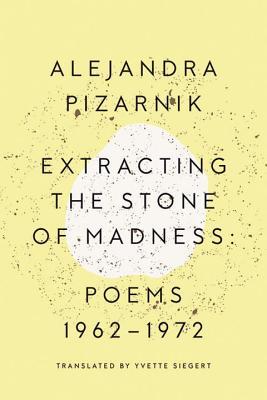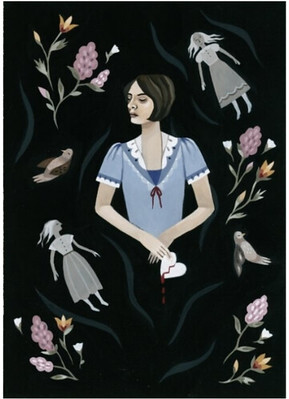What do you think?
Rate this book


384 pages, Paperback
First published January 1, 1968

Caminos del Espejo
xii.
Pero el silencio es cierto. Por eso escribo. Estoy sola y escribe. No, no estoy sola. Hay alguien aquí que tiembla. […]
xv.
Delicia de perderse en la imagen presentida. Yo me levanté de mi cadáver, yo fui en busca de quien soy. Peregrina de mí, he ido hacia la que duerme en un país al viento.
xvi.
Mi caída sin fin a mi caída sin fin en donde nadie me aguardó pues al mirar quién me aguardaba no vi otra cosa a mí misma.
xvii.
Algo caía en el silencio. Mi última palabra fue yo pero me refería al alba luminosa.
Paths of the Mirror
xii.
But the silence is certain. This is why I write. I am alone and I write. No, I am not alone. There is someone here who is trembling. […]
xv.
The pleasure of losing yourself in the image foreseen. I rose from my body and went out in search of who I am. A pilgrim of my self [or from my self; the Spanish is ambiguous], I have gone to the one who sleeps in the winds of her country.
xvi.
My fall that is endless into my fall that is endless, where no one expected me, since when I looked to see who expected me, I saw no other thing than my self.
xvii.
Something falling in the silence. My final word was I, but by this I meant the luminous dawn.
*
Fragmentos para Dominar el Silencio
...
La muerte ha restituido al silencio su prestigio hechizante. Y yo no diré mi poema y yo he de decirlo.
Aun si el poema (aquí, ahora) no tiene sentido, no tiene destino.
Fragments to Dominate the Silence
...
Death has refunded silence its spellbinding prestige. And I won’t say my poem and I have to say it. Even if the poem (here, now) has no meaning, it has no fate.
unfounding
someone wanted to open a door. she felt pain in hands that were iron-cuffed to their prison of bad-omened bones.
all night she has struggled with her new shadow. it rained inside the dawn. it was pelted by mourners.
childhood clamors up from my crypted nights.
the music releases artless colors.
grey birds in the early morning are to the closed window what this poem is to my pain.
primitive eyes
where fear neither speaks in stories or poems, nor gives shape to terrors or triumphs.
my name, my pronoun — a grey void.
i'm familiar with the full range of fear. i know what it's like to start singing and to set off slowly through the narrow mountain pass that leads back to the stranger in me, to my own emigrant.
i write to ward off fear and the clawing wind that lodges in my throat.
and in the morning, when you are afraid of finding yourself dead (of there being no more images): the silence of compression, the silence of existence itself. this is how the years fly by. this is how we lost that beautiful animal happiness.
I weigh myself in the language I use for weighing my dead.
In love with the words that create small nights in the uncreatedness of the day and its ferocious void.
'Ambushed in my writing
you are singing in my poem.
Captive of your sweet voice
engraved in my memory.
Bird intent on its flight.
Air tattooed by an absence.
Clock that keeps time with me
so I never wake up.'